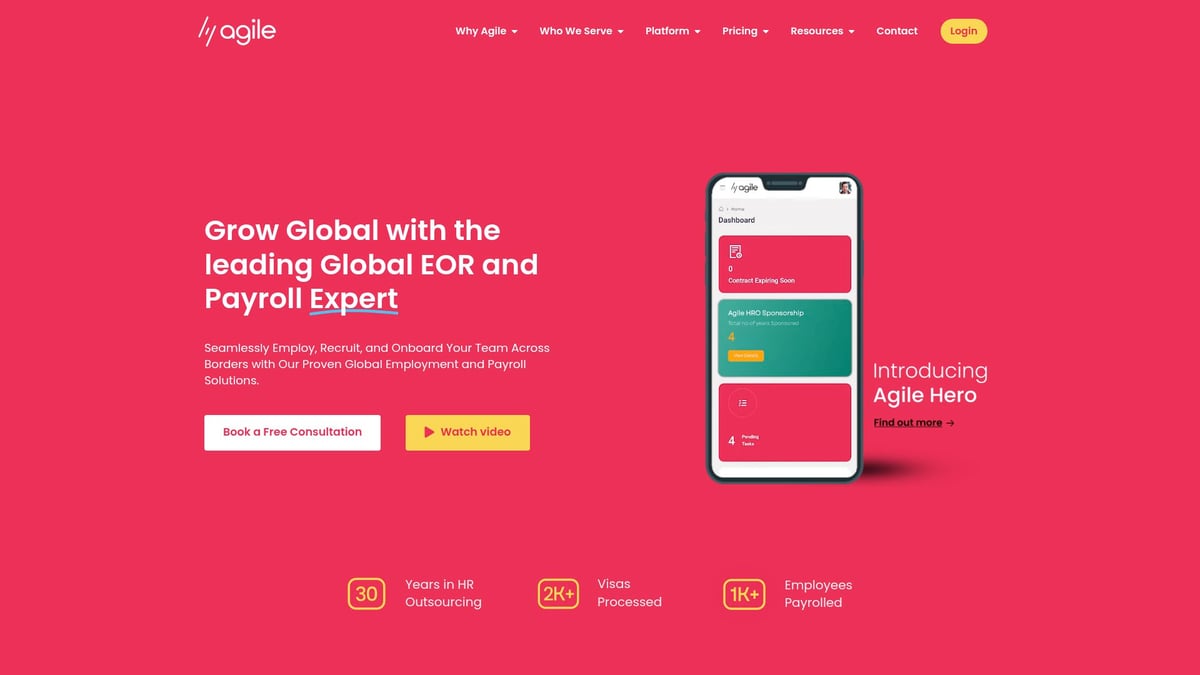In 2025, HR isn’t just a department, it is the engine driving business resilience, sparking innovation, and fueling global growth. Every day, organizations face new challenges as technology transforms work, remote teams become the norm, and employee expectations rise.
It is more hr important than ever to master modern strategies that help companies attract, retain, and empower top talent. This guide is packed with essential insights to help you navigate the evolving HR landscape.
We will explore why HR is now a strategic business partner, reveal the core functions that drive success, and share actionable steps for maximizing HR’s impact. Get ready to unlock the future of HR in 2025.
The Strategic Importance of HR in 2025
Picture a company where HR is at the heart of every decision. In 2025, the hr important role has transformed from behind-the-scenes support to a strategic business partner. This evolution means HR now fuels growth, shapes culture, and navigates the ever-changing workforce landscape.

HR as a Business Driver
Once, HR was seen as paperwork central. Now, it is the engine of business resilience and innovation. Yet, according to BambooHR, 26% of large organizations still leave HR out of the C-suite. This hr important oversight can stall growth and weaken a company’s ability to adapt quickly.
When HR is included at the top, the impact is visible everywhere. Culture becomes a living, breathing asset, not just a poster on the wall. HR initiatives shape how people show up, work together, and stay motivated. For example, companies with strong HR leadership report higher employee engagement and better retention.
Let’s look at a quick comparison:
| With Strategic HR | Without Strategic HR |
|---|---|
| High retention | High turnover |
| Strong culture | Poor engagement |
| Agile response | Stalled growth |
Imagine a global tech firm struggling with turnover. By empowering HR to drive a culture of feedback and development, they cut turnover by 15% and saw revenues climb. The lesson is clear: making hr important at the leadership table delivers measurable gains.
Neglecting HR in strategy can cost dearly. High turnover, disengaged employees, and missed opportunities are just the start. In today’s talent-driven market, HR is also the guardian of employer branding, ensuring the company stands out to top candidates.
Aligning HR with Organizational Goals
How do you ensure HR’s efforts are always pushing the business forward? The answer starts with alignment. It’s hr important to link every HR initiative to core business objectives. This means HR leaders must speak the language of data and outcomes, not just policy.
Modern HR teams use analytics to track what matters: retention, engagement, and productivity. By setting clear KPIs, HR can measure its impact and adjust strategies in real time. Building a culture of feedback keeps improvement constant, while data-driven insights reveal what’s working and what needs a new approach.
Innovation thrives when HR is trusted to experiment and adapt. For instance, feedback loops and regular surveys give employees a voice, helping HR spot trends and act quickly. This adaptability is a major asset in a rapidly changing world.
To truly make hr important, organizations are turning to global HR consulting strategies. These strategies help HR teams align tightly with business needs, tap into global talent, and navigate complex regulations. The result? Greater agility, stronger compliance, and a clear path to growth.
In 2025, the organizations that treat hr important as a strategic partner will be the ones leading the way. By weaving HR into every business goal, companies unlock innovation, attract top talent, and build a culture that lasts.
Core HR Functions Essential for Success
Mastering the core HR functions is hr important for every organization aiming to thrive in 2025. These pillars of human resources are the foundation for attracting, developing, and retaining top talent while ensuring compliance and nurturing a positive workplace culture. Let’s break down each function and see how it drives business success.

Talent Acquisition and Strategic Hiring
Finding the right people is more than just filling seats—it’s about building a team that fits your culture and drives your mission forward. In today’s market, hr important leaders focus on both technical skills and cultural alignment. Did you know it takes an average of 41 days to fill a role, and a poor hiring decision can cost between $7,000 and $28,000 per employee?
Modern recruitment strategies now use technology, strong employer branding, and access to global talent pools. For example, structured hiring processes create a consistent candidate experience and lower turnover. Businesses looking to expand their reach can benefit from effective global talent acquisition strategies, helping them attract the best candidates worldwide.
The right approach to talent acquisition makes hr important for organizational growth and long-term stability.
Employee Development and Performance Management
Once you’ve built a strong team, hr important efforts turn to continuous employee development. Ongoing training and upskilling not only keep your workforce agile but also boost retention rates. Employees who receive regular feedback and performance reviews are more motivated and engaged.
In 2024, 9% of employees left their jobs because of poor management. This is where hr important leaders step in, training managers to provide effective guidance and create clear career paths. By investing in employee growth, organizations foster loyalty and innovation.
Creating advancement opportunities is more than a perk—it’s a necessity for staying competitive and keeping top performers inspired.
Compensation, Benefits, and Wellbeing
Competitive pay is hr important for attracting and keeping star talent, but it’s only part of the equation. Today’s workforce expects a comprehensive benefits package, including health coverage, wellbeing programs, paid time off, and financial incentives.
Companies that offer robust benefits see higher engagement and lower absenteeism. For instance, flexible benefits tailored to real employee needs build trust and satisfaction. HR teams must regularly benchmark compensation and benefits against market standards to stay ahead.
Aligning rewards with what employees value most is not just smart—it’s hr important for building a resilient, motivated workforce.
Compliance and Risk Management
With legal requirements constantly evolving, hr important professionals play a vital role in keeping organizations compliant. In 2024, the EEOC received 88,531 new discrimination charges, highlighting the need for vigilant risk management.
HR must develop proactive policies, conduct regular audits, and stay updated on labor laws, workplace safety, and anti-discrimination regulations. Protecting the organization from costly legal issues isn’t just about avoiding fines—it safeguards your reputation and employee trust.
By prioritizing compliance, hr important teams create a safe, fair environment where everyone can flourish.
Onboarding, Offboarding, and Employee Experience
The employee journey begins and ends with hr important processes. Structured onboarding sets new hires up for success, improving retention and productivity from day one. Companies that tailor onboarding to specific roles see higher engagement and faster integration.
When it’s time for an employee to leave, thoughtful offboarding protects your employer brand and ensures valuable knowledge is transferred. Creating a positive, inclusive experience at every stage is hr important for fostering loyalty and a sense of belonging.
Every interaction shapes how employees feel about your company—make each one count.
Calculating the ROI of HR Initiatives
Understanding the true impact of HR strategies is more crucial than ever. In a world where resources are tight and competition is fierce, proving the value of HR important initiatives is what sets thriving organizations apart from those that fall behind. Let’s explore how to measure HR’s contribution and demonstrate its value to leadership.

Key Performance Indicators for HR Success
Every HR important initiative should be anchored by clear, measurable outcomes. The most telling metrics include turnover rates, retention rates, and absenteeism. For example, in 2024, the US average absence rate stood at 3.2 percent, while top-performing organizations aimed for an 85 to 15 retention to turnover ratio.
By tracking these KPIs, HR leaders can pinpoint which programs drive real business results. Imagine a scenario where a company’s turnover drops by 10 percent after implementing targeted manager training and employee development programs. The financial savings from reduced hiring costs and increased productivity directly reflect HR important contributions.
It’s not just about numbers, though. Advanced analytics can connect employee engagement scores to customer satisfaction and revenue growth. HR teams that use data to tell this story elevate their role from support to strategic partner.
Payroll is another critical KPI. Efficient payroll processes reduce errors, boost employee satisfaction, and protect against compliance risks. Investing in the right tools, as detailed in the Importance of payroll in HR, can transform payroll from a back-office task into a driver of overall HR important success.
| KPI | Why It Matters | Target Benchmark |
|---|---|---|
| Turnover Rate | Cost savings, stability | Under 15 percent |
| Retention Rate | Talent retention, engagement | Over 85 percent |
| Absenteeism | Productivity, morale | Under 3.5 percent |
| Payroll Accuracy | Compliance, satisfaction | Over 99 percent |
Demonstrating Value to Leadership
Translating HR important outcomes into financial impact is the bridge to executive buy-in. Start by linking improvements in turnover and absenteeism to cost savings. For example, if each avoided turnover saves $10,000, a reduction of 20 exits means $200,000 retained for the business.
HRIS ROI calculators can help quantify the value of investments in technology and process improvements. Use real examples, such as how a revamped onboarding process led to a 15 percent boost in first-year retention, directly impacting productivity and reducing wasted training spend.
Storytelling matters here. Share narratives where HR important strategies changed the course of a team or project. Did a new benefits package lower absenteeism? Did a DEI initiative fuel innovation and revenue?
Equip yourself with data and stories. Present them in leadership meetings, annual reports, and strategy sessions. When HR can show, not just tell, its value, it secures a seat at the table and drives lasting business growth.
The Risks of Neglecting HR in 2025
In 2025, the risks of ignoring the hr important responsibilities are no longer hidden in the shadows. Imagine a fast-growing company that focused only on sales, leaving HR on the sidelines. At first, growth was explosive. But soon, cracks appeared: employees left faster than they could be replaced, and productivity slid as morale sank. This story isn’t unique. It’s a warning for any organization that forgets how hr important it is to stay people-focused.
Financial and Productivity Fallout
When companies dismiss the hr important role of HR, turnover costs soar. Poor hiring choices can cost between $7,000 and $28,000 per employee, draining budgets and slowing growth. Productivity also takes a hit as new hires struggle without structured onboarding, and existing staff shoulder more work.
Consider this: subpar benefits management makes it hard to compete for top talent. Valuable employees leave for better offers, and teams are left scrambling. High absenteeism and burnout become the norm, making it clear why hr important practices can’t be overlooked.
- Average cost of poor hires: $7,000–$28,000 per person
- US absence rate in 2024: 3.2%
- Companies with weak HR see higher turnover and lower output
Employee Engagement and Employer Brand
Low employee commitment is a silent killer. When hr important feedback and support systems are missing, engagement plummets. A staggering 50% of global workers would accept a 20% pay cut for better quality of life, highlighting just how much people value a supportive workplace.
Structured onboarding and offboarding are vital for protecting employer reputation. Without them, negative reviews and word-of-mouth can damage your brand. Want to know how work-life balance transforms motivation and retention? Studies show it’s a major factor in organizational performance, as explored in this work-life balance in business management report.
- Poor HR support = low engagement
- Damaged employer branding deters top talent
- Work-life balance is a powerful retention tool
Legal, Compliance, and Cultural Risks
Ignoring the hr important legal and compliance aspects invites disaster. In 2024, the EEOC received 88,531 new discrimination charges, a stark reminder of the risks. Without strong HR oversight, policies go unchecked, and companies face lawsuits, fines, or costly settlements.
Real-world examples abound: organizations have faced public backlash, legal fees, and lost customers due to HR failures. A toxic culture breeds stress, health issues, and even more turnover. Protecting your business means making HR a priority, not an afterthought.
- 88,531 EEOC discrimination charges in 2024
- Lawsuits and PR crises from HR missteps
- Toxic culture impacts health and retention
No organization can afford to treat HR as less than hr important. The cost of neglect is simply too high, and the stories of those who learned this the hard way are everywhere. Make HR your engine for resilience and growth in 2025.
HR’s Role in Modern and Future Work Environments
The world of work is changing rapidly, and the hr important functions at the heart of this transformation have never been more crucial. As technology, team structures, and employee expectations shift, HR leaders are rewriting the playbook for success. Let’s explore how these changes are shaping the future of HR in 2025.
Adapting to Remote and Hybrid Work
The rise of remote and hybrid work has made hr important for organizations aiming to stay agile and connected. HR professionals are now responsible for designing flexible work policies that help employees thrive, no matter where they are. This includes:
- Setting clear expectations for remote work
- Providing technology and training for virtual collaboration
- Supporting work-life balance through flexible hours
A recent survey showed that organizations embracing hybrid models reported a 20% increase in employee satisfaction. The right HR approach ensures productivity and compliance, while fostering a sense of belonging across distributed teams.
Diversity, Equity, and Inclusion (DEI) Initiatives
Building an inclusive workplace is a core hr important function in 2025. HR leads the charge in creating equitable opportunities, from recruitment to career advancement. By developing diverse talent pipelines and promoting open dialogue, companies can unlock creativity and innovation.
Strategies for DEI success include:
- Unbiased hiring practices
- Employee resource groups
- Transparent pay and promotion policies
Companies that prioritize DEI see higher retention rates and stronger business outcomes. HR’s commitment to fairness and belonging sets the tone for the entire organization.
Leveraging Technology and Automation
Technology is making hr important in ways we couldn’t have imagined a decade ago. From AI-powered recruitment tools to automated onboarding, HR tech is streamlining processes and freeing up time for strategic work. According to HR technology trends for 2025, the latest solutions enable smarter decision-making and personalized employee experiences.
| HR Tech Benefit | Before Automation | With Automation |
|---|---|---|
| Time to Hire | 45 days | 25 days |
| Onboarding Errors | High | Low |
| HR Admin Time | 60% of workload | 30% of workload |
Embracing new technologies helps HR teams stay ahead in a competitive market.
Enhancing the Employee Experience
Delivering a positive employee experience is an hr important goal that drives retention and engagement. HR teams now use real-time feedback systems, wellness programs, and personalized communication to support their people. For example, companies with strong wellness initiatives report less absenteeism and higher morale.
Elements of a modern employee experience:
- Regular check-ins and feedback
- Health and wellness resources
- Opportunities for growth
By listening and responding to employee needs, HR builds a culture where people feel valued and motivated.
The Future of HR: Trends for 2025 and Beyond
Looking ahead, the most hr important trends include preparing for skills gaps, investing in continuous learning, and staying ahead of regulatory changes. HR will lead in workforce planning, ensuring organizations have the right talent and tools to adapt.
Key focus areas for HR in 2025:
- Upskilling and reskilling programs
- Agile workforce planning
- Proactive compliance management
As the workplace evolves, HR’s strategic vision and adaptability will be essential for long-term success.
Step-by-Step Guide: Implementing a Modern HR Strategy for 2025
Ready to transform your organization? This step-by-step guide helps you build a future-proof HR approach. Each step is essential for any leader who understands why HR important strategies matter for 2025. Let’s break down what you need to do, one step at a time.
Step 1: Assess Current HR Capabilities and Gaps
Every successful journey starts with an honest look at where you stand. Begin by conducting a thorough HR audit. Interview employees and leadership to gather insights about the current culture, systems, and pain points. Use surveys and feedback tools to uncover hidden issues.
Analyze key metrics: turnover rates, engagement scores, and any compliance incidents. A simple table like the one below can help visualize your findings:
| Metric | Current Value | Target Value |
|---|---|---|
| Turnover Rate | 18% | 10% |
| Engagement Score | 6.5/10 | 8/10 |
| Compliance Incidents | 3/year | 0/year |
This clear-eyed assessment makes the hr important for identifying priorities and setting the stage for meaningful change.
Step 2: Align HR Strategy with Business Goals
Next, bridge the gap between HR and the overall business vision. Collaborate with executive leaders to ensure every HR initiative maps directly to organizational objectives. Define what success looks like for both talent and the company.
Set measurable goals for hiring, retention, and employee development. For example, target a 15% increase in retention or a 10% boost in internal promotions. Integrate these hr important objectives into regular business reviews and strategy sessions.
A culture of open communication and feedback ensures everyone moves in the same direction. Make HR a strategic partner, not just a support function.
Step 3: Invest in HR Technology and Data Analytics
Modern HR is powered by smart technology. Evaluate HRIS platforms and select tools that support your organization’s needs, from payroll to performance tracking. Implement dashboards that monitor key metrics in real time.
Train your HR team to use analytics for better decisions. Automation can handle repetitive tasks, freeing up time for strategic work. To see how artificial intelligence is reshaping recruitment and productivity, check out AI’s impact on HR practices.
Embracing technology is an hr important step toward staying competitive and agile in 2025.
Step 4: Develop Comprehensive Talent Management Programs
Attracting and keeping top talent requires more than just hiring. Build structured processes for recruitment, onboarding, and career development. Use data to spot skill gaps and design targeted upskilling programs.
Craft competitive compensation and benefits packages based on market research. Launch mentorship and leadership development initiatives to nurture your future leaders. For deeper insights into emerging recruiting challenges and strategies, the 2025 Talent Trends Report offers valuable guidance.
Remember, a holistic approach to talent management is always hr important for long-term success.
Step 5: Foster a Culture of Inclusion, Flexibility, and Wellbeing
Today’s workforce expects more than a paycheck. Implement DEI programs that promote fairness and belonging. Develop flexible work policies, such as remote or hybrid options, to support work-life balance.
Introduce wellness initiatives that address mental, physical, and emotional health. Establish feedback channels so employees feel heard and valued. These actions make the hr important for building trust and engagement across all teams.
Small steps, like recognizing achievements or offering mental health resources, can have a lasting impact on morale.
Step 6: Monitor, Measure, and Iterate
Success is never static. Set clear KPIs and review progress regularly. Use feedback from employees and data analytics to refine your approach.
Stay agile by adapting strategies as your workforce and industry evolve. Hold quarterly reviews to assess what’s working and where you can improve. This continuous improvement mindset is what makes hr important for sustainable business growth.
By following these steps, you ensure your HR strategy is not just current, but future-ready.
Agile HRO: Your Global HR Partner for 2025 Success
When it comes to mastering hr important challenges on a global scale, Agile HRO stands out as the trusted partner for 2025. Their expertise covers Employer of Record, managed payroll, global mobility, and HR consulting, helping businesses stay compliant and agile across more than 100 countries.

Agile HRO’s integrated technology and expert support take the complexity out of cross-border hiring and payroll. With over 30 years of experience and a commitment to personalized, human-first service, they empower organizations to grow confidently and adapt to the ever-changing hr important landscape worldwide.
Stepping back, you can see how the right HR strategies aren’t just about ticking boxes—they’re about building a future where your team can thrive, wherever they are in the world. Imagine what your company could achieve with a partner who handles the complexities of payroll, visas, and compliance, so you can focus on growth and your people’s success. If you’re ready to make global hiring simpler, safer, and truly human in 2025, let’s chat about your next steps. Book a Consultation and discover how Agile can help you create the HR story you want to tell.